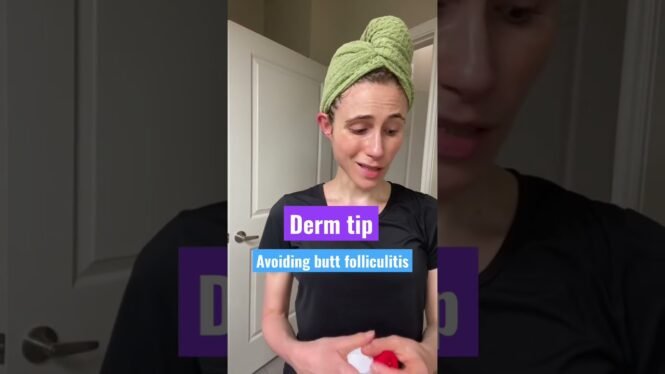For most people, hair care is an essential part of their daily routine. However, dealing with folliculitis or inflammation of the hair follicles can be a painful and frustrating experience. That’s why we teamed up with dermatologist, Dr. Dray, to provide practical tips and insights on how to avoid and manage folliculitis. Keep reading to learn how you can keep your hair and scalp healthy and free from this annoying skin condition.
Introduction
Skincare is undoubtedly one of the most significant aspects of maintaining a healthy body. Often, we take our skin for granted and end up making mistakes that can have detrimental effects. One of the most common skincare issues is folliculitis, which is an inflammation of the hair follicles caused by various reasons.
In this article, we will discuss how you can avoid folliculitis and attain healthy skin. We will also share some expert tips from dermatologist Dr. Drayzday, who is renowned for her skincare advice and expertise. So, let’s dive in and learn about the dos and don’ts to keep your skin hair follicles healthy.
What is Folliculitis?
Folliculitis is a condition that arises when hair follicles become inflamed due to bacterial or fungal infection, irritation, or damage. Symptoms include small red or white bumps, itchiness, and tenderness. The condition can occur anywhere on the body where hair grows, but it is most common on the scalp, beard area, armpits, and groin.
Dos and Don’ts to Avoid Folliculitis
To prevent folliculitis, you need to follow certain skincare practices that will keep your hair follicles healthy. Here are some of the dos and don’ts:
Do
-
Keep your skin clean and dry.
-
Exfoliate your skin gently to remove dead skin cells and debris that can clog hair follicles.
-
Use clean towels and clothing to avoid bacterial or fungal infection.
-
Learn about the ingredients in the skincare products that you use to avoid allergic reactions.
-
Use an antifungal or antibacterial soap to prevent infection.
Don’t
-
Avoid shaving too frequently or closely to the skin, which can damage hair follicles.
-
Do not share your personal items such as razors, towels, or clothing with others to avoid infection.
-
Avoid tight clothing that can rub against the skin, leading to irritation and buildup of sweat.
-
Don’t use harsh chemicals or products that can dry out or irritate the skin.
Expert Advice from Dr. Drayzday
Dermatologist Dr. Drayzday recommends the following tips to prevent and treat folliculitis:
-
Cleanse your skin with a gentle cleanser to remove impurities without damaging the skin barrier.
-
Use moisturizers that contain ceramides, which help to restore and strengthen the skin barrier.
-
Apply topical antibiotics or antifungal creams to infected areas.
-
Avoid picking at or squeezing bumps and pimples, which can cause further infection and scarring.
-
Consult a dermatologist if the condition persists or worsens.
Video Resource
In addition to the advice shared above, you can access additional information on skincare routines, ingredients, and mistakes to avoid through the video embedded below by dermatologist Dr. Drayzday.
[Embedding video]
Conclusion
Folliculitis can be a bothersome condition that can interfere with our daily lives. However, by following the dos and don’ts discussed above and using expert advice from dermatologist Dr. Drayzday, you can avoid folliculitis and maintain healthy skin. Remember to prioritize clean and gentle skincare, avoid harsh products and practices, and seek medical attention if necessary.
FAQs
-
How is folliculitis diagnosed by a dermatologist?
Ans: A dermatologist can diagnose folliculitis by performing a physical examination of the affected area and may also take a skin culture to determine the cause of the infection. -
Can folliculitis be contagious?
Ans: Yes, folliculitis can be contagious if it is caused by bacteria or fungi, and you share personal items with others. -
Can you prevent folliculitis on the scalp?
Ans: Yes, you can prevent scalp folliculitis by avoiding tight hairstyles, keeping the scalp clean and dry, and using shampoo that contains antifungal or antibacterial ingredients. -
Can stress cause folliculitis?
Ans: Yes, stress can weaken the immune system, making it more susceptible to infections like folliculitis. -
How long does it take for folliculitis to heal?
Ans: The time it takes for folliculitis to heal depends on the severity of the condition and the treatment prescribed by a dermatologist. Mild cases may heal within a few days, while more severe cases may take weeks to months to heal.

